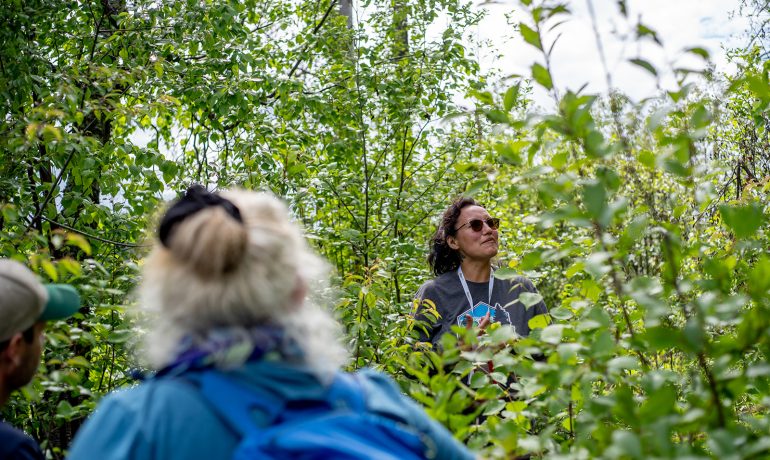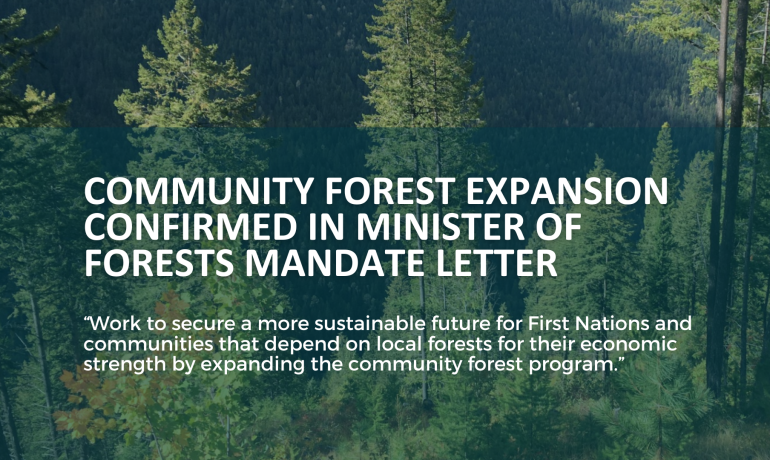BCCFA recommends that BC actively support more partnerships between Indigenous and non-Indigenous communities on Community Forest Agreements. Where independent licenses are preferred, government should support collaboration between community forest agreement holders and First Nations tenure holders. Click here for the full text of the bill.
From the CBC, by Chantelle Bellrichard:
B.C.’s promised bill on Indigenous rights has been tabled in the legislature, and if passed, the province will be the first in Canada to legally implement the United Nations Declaration on the Rights of Indigenous Peoples (UNDRIP).
Since the province committed to the legislation more than a year ago, a team from the Ministry of Indigenous Relations and Reconciliation has been working with the First Nations Leadership Council to draft the historic bill.
“This legislation is a real catalyst for significant change,” said Premier John Horgan after the bill was introduced.
“This bill is critically important because Indigenous rights are human rights. We all want to live in a province where the standard of living for Indigenous Peoples is the same as every other human being in the province.”
Indigenous leaders from across the province and across the country filled the gallery, some invited to sit on the floor of the central aisle. Those present represented the range of political leadership among Indigenous communities — there were elected MLAs, MPs Jody Wilson-Raybould and outgoing NDP MP Romeo Saganash, hereditary chiefs, elected chiefs and Elders.
The legislation is meant to provide a framework for the province to align its laws with the standards of the UN declaration — something Indigenous groups have long been advocating for in B.C. and across the country.
At its core, the legislation has been discussed among Indigenous leaders as a way to improve government-to-government relations.
“It moves us away from a relationship of denial,” Cheryl Casimer, one of the First Nations Summit political executives, said in an interview on CBC’s On the Coast.
“Denial of our rights, denial of our title, denial of our basic human rights — and puts us in a position where we can sit as equal decision-maker at tables where decisions are being made that impact our lives.”
UNDRIP has now been endorsed by both B.C. and Canada. It consists of 46 articles meant to recognize the basic human rights of Indigenous people along with their rights to self-determination.
Article 43 states the rights detailed in the declaration represent “the minimum standards for the survival, dignity and well-being of the Indigenous peoples of the world.”
“This is about recognizing human rights applied to Indigenous peoples, and it’s something that governments of all stripes have not done before despite the fact it’s in the Constitution of Canada,” Scott Fraser, the B.C. minister of Indigenous relations, said Wednesday.
Fraser introduced the bill for a first reading on Thursday morning. He spoke about next steps and about how the legislation provides a path forward in the government-to-government relationship between Indigenous Peoples and the province.
“By working together we get better outcomes. That is how we create opportunities for Indigenous Peoples, for B.C. businesses, for communities and for families everywhere,” he said.
IMAGE: From the BC Assembly of First Nations Twitter: Members of BCAFN
Related Post
As Published in Canadian Forest Industries Magazine, Pulp & Paper Magazine and Canadian Biomass Magazine
Jennifer Gunter’s Op Ed, “Community Forests: Rooted in Community,
Minister of Forests Mandated to Expand BC’s Community Forest Program
In the recently released mandate letter to the Minister



